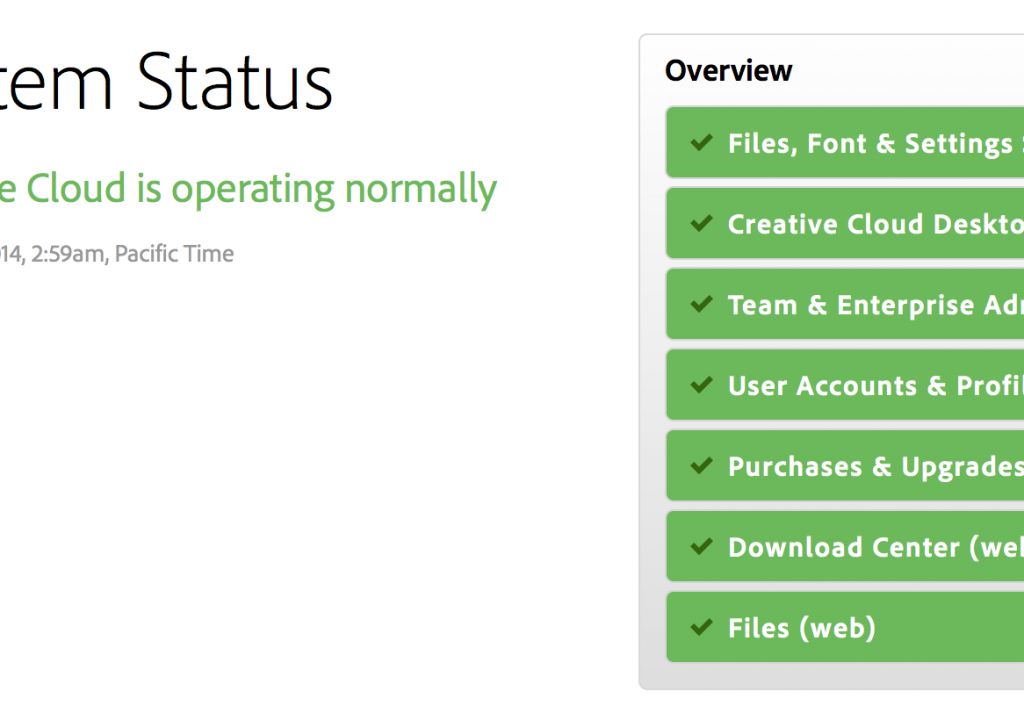Report an outage online:
- Log in to your Smart Hub account and select “Report an Outage”
Report an outage: Call 206-684-7400 to report an outage or check the status of an outage at your business or home. You will need either the account number for the location, or a phone number listed in association with the account. Safety If you are currently experiencing an electrical emergency or outage, please call 800.696.1000.
Or over the phone:
- Mat-Su Valley: call 746-POWR (907-746-7697)
- Eagle River: call 696-POWR (907-696-7697)
Stay Connected
Connect with us for outage updates and other information:
Outage Updates from Facebook
During a large outage, MEA will report information about any outages impacting more than 50 members. Please follow and like our Facebook page for outage updates.
Outages Map
The outage map provides the general area in which an outage is occurring. For outages impacting more than 50 members, please refer to our Facebook pagefor regular updates.
Is your power out? Never assume MEA knows your power is out. Please report any power outages through your Smarthub account or by calling 907-746-7697 (POWR) for the Mat-Su area or 907-696-7697 (POWR) for the Eagle River and Chugiak areas.
1. Report the outage to MEA
- In most cases, your phone call will go to MEA’s automated system. When a large outage occurs, there simply aren’t enough people to answer the phones. Using the automated system, we can gather outage reports quickly from our members any time of day. The automated system also allows our dispatchers to call many members back at once to confirm each member’s power is back on. This is important, as we don’t want to send the crews away from your location if we haven’t completed restoring power.
- If MEA determines the outage is widespread and/or could affect members for more than an hour, local radio stations are notified so they can announce repair progress. The following stations help report extended outages for MEA when they occur within the station’s broadcast area: KAYO 100.9, KMBQ 99.7 FM, KTNA 88.9 FM.
- MEA also uses Facebook and Twitter to post updates on outages.
2. Be Safe. Depending on the time of year, extended outages may require you to temporarily use alternative energy and heat sources. Please do so safely!
- Generators: Generators pose serious hazards when not used properly. Make sure you know how to use one safely for backup energy. If you are considering getting a generator, get advice from a professional, such as an electrician. Make sure that the generator you purchase is rated for the power that you think you will need.
- Adequate ventilation is critical. Exhaust from the generator contains carbon monoxide, an odorless, colorless gas that is deadly. Always run the machine outdoors.
- Never wire a building’s electrical system into a generator unless you have a proper switching setup to isolate your home from the grid. If isolation is not ensured, “back feed” through the electric meter and into MEA’s power lines will happen when the generator is brought on line. Linemen working to restore your power can come into contact with your power source and be injured or killed. See Generator Diagrams for more information.
- Use caution with extension cords. Always follow the guidelines specified by the generator manufacturer regarding extension cords and appliances. If you must use an extension cord, make sure it is heavy-duty grade, properly grounded and in good condition. Position cords out of the way to prevent tripping hazards, but never cover them with rugs or tape.
- Heating: Heating the home using alternative sources is one of the leading causes of home fires. Take these precautions to cut your risk of starting a fire in the home.
- Never use your stove or oven to heat your home.
- Never leave alternative heaters unattended—turn off space heaters or extinguish the fireplace before going to bed or leaving home.
- Keep all flammable materials and potential fuel sources—including but not limited to newspapers, matches, bedding, clothing, carpets and rugs—at least three feet away from heat sources such as space heaters, fireplaces and stoves. Place your space heater (use a model that shuts off automatically if the heater falls over) on a hard, level, nonflammable surface.
- Keep the fire in your fireplace by using a glass or metal screen large enough to catch sparks and rolling logs. Never leave fireplaces unattended. Be sure to have wood and coal stoves, fireplaces, chimneys and furnaces professionally inspected once a year.
- Install smoke alarms on every floor of your home. Check them once a month by pressing the test button, and replace batteries as necessary.
- Have a fire extinguisher easily accessible in every room of your house.
3. Conserve energy
- Keep traffic through your outside doors to a minimum to avoid losing household heat during a winter outage. If possible, gather family members in a central room and close off the rest of the house.
- Do not open refrigerators or freezers more than necessary. Food will remain frozen in most freezers for at least 24 hours and often for two or more days as long as the freezer isn’t opened.
- Unplug all appliances and turn your thermostat to its lowest setting until power is restored. Power restoration after an outage can cause damage to sensitive electronic equipment such as TVs and computers. To protect your equipment, MEA recommends you install voltage surge protectors and/or an uninterrupted power supply system (UPS). During an extended outage, some people turn off all the breakers in the house except one going to a lamp that is turned on, to let them know when power is restored.
Preparing for a Power Outage
Extended power outages sometimes occur despite MEA’s best efforts to restore power quickly. In the event of an outage that lasts an hour or longer, you’ll be glad you prepared ahead of time, especially if the outage happens during winter when temperatures can be extreme and daylight is scarce.
Prepare a survival pack. Test equipment periodically and replace items as necessary. Include these basics:

- Matches
- Candles
- Lantern
- Hand-operated can-opener
- Extra batteries for battery operated equipment
- Radio (battery-operated)
- Flashlight
- Blankets and/or sleeping bags
- Propane camp stove for cooking and extra propane
- Non-perishable food that’s easy to prepare or ready to eat
- Water
- Prescription medications
- Pet food and medications
Know how to drain the water supply and water heating systems in your house. Drain these systems when the temperature inside your residence falls below 40 degrees and the power is still off; drain at a warmer temperature if your house has cold spots.
hidden
About our outage map
Log in to see if your home/business is without power and the estimated time of restoration.
| Customers affected | |
|---|---|
| Multiple outages | |
| 1–49 | |
| 50–500 | |
| 501–1000 | |
| 1001–2500 | |
| 2501+ | |
Why does my neighbor have power, but I do not?
Sometimes you may notice your neighbor's power has been restored yet, you are still out. There may be several explanations.

- You may be on different circuits
Not all circuits are restored at the same time, and different parts of your neighborhood may be served by different circuits. - You may be on different lines
A restored customer's service comes directly from a primary line, which is restored first, while a customer without service may be served off a secondary line. - There may be problems with your specific line
There may be a problem with your individual service line, the weatherhead or your meter.
hidden
Common questions
To report your electric outage, please visit the Report an Outage page. You can report an outage one of four ways via the Report an Outage page:

Visit the Report an Outage page to get started.
During an outage, it's important to know what equipment is Vectren's responsibility to repair and what equipment repair lies in the hands of the home or business owner. Transfer of responsibility happens at the point whereby the service line, the line that runs from the pole to the premise, attaches to the home. View a diagram of electric equipment.
This device is called the weatherhead (see photo below)—it's simply a conduit that attaches to your home and allows the line to run down the side of your home and feed into the meter box. If this device and/or the meter box has been damaged or ripped from your home, it is your responsibility to contact an electrician to repair. This is not something you want to try and fix yourself.
If the meter box is pulled away from the house and you have power, you should call an electrician to reattach the meter box. Keep in mind: an electrical inspection may be required. If you find yourself without power, go outside and inspect the weatherhead. Keep in mind to stay away from downed power lines.
If it's damaged, call Vectren to report your outage and then call an electrician to get the weatherhead repaired and/or the meter box reattached. The electrician can start the repairs without the help of Vectren. Then, once Vectren crews arrive on scene to restore service, they can restore power to your home quickly given the weatherhead issue has already been resolved.
Vectren prioritizes the restoration process by restoring power to the greatest number of customers as safely, quickly and efficiently as possible. If the damage is severe and widespread, emphasis is placed on vital public health and safety facilities, such as hospitals, law enforcement, fire departments, water treatment facilities and pumping stations given these facilities are essential to protect the health and safety of the public.
When threatened with severe weather, Vectren prepares well in advance to be able to react quickly. From monitoring the weather to identifying crews as well as bringing in extra call-takers or even accessing additional assistance from contractors or from neighboring utility crews, Vectren takes the necessary steps to efficiently prepare for and respond to system damage.
Our typical restoration process follows this sequence:
Comcast Recent Outages
Recent Comcast Outage

